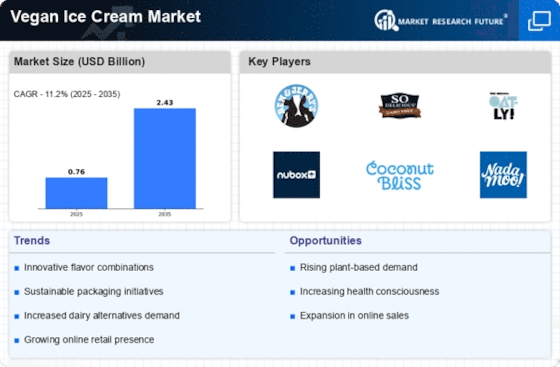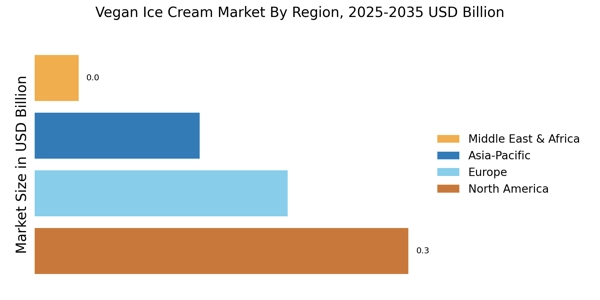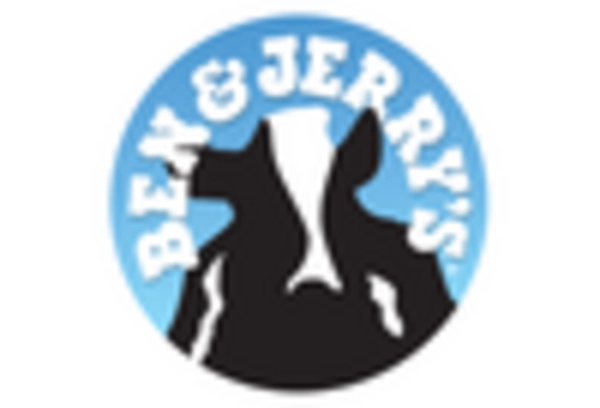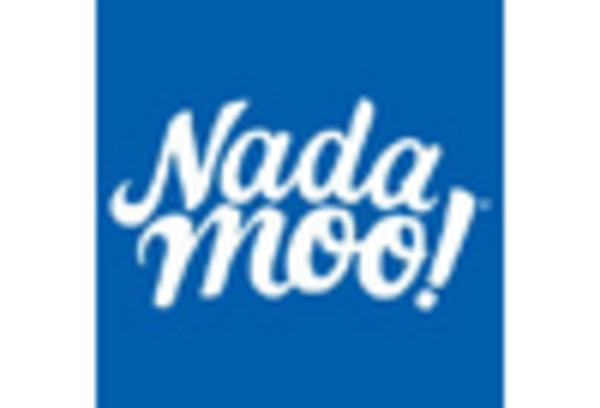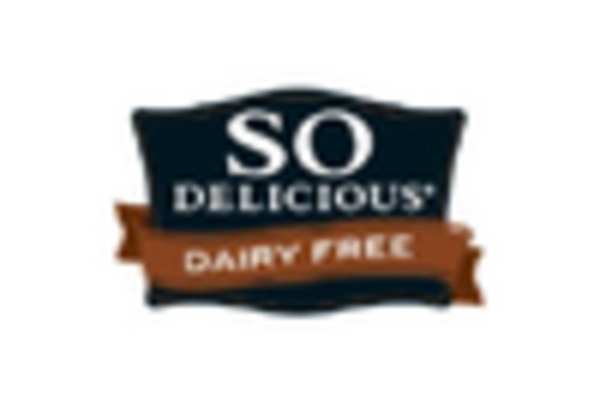Diverse Flavor Profiles
Flavor innovation plays a crucial role in the Vegan Ice Cream Market, as manufacturers are continuously experimenting with unique and diverse flavor profiles. This trend is particularly appealing to younger consumers who seek novel and exciting taste experiences. The introduction of flavors such as matcha, lavender, and exotic fruits has the potential to attract a wider audience. Market data indicates that brands offering innovative flavors are likely to capture a larger market share, as consumers are drawn to products that stand out. This emphasis on flavor diversity not only enhances consumer interest but also encourages repeat purchases, thereby contributing to the overall growth of the vegan ice cream segment.
Environmental Sustainability
The growing emphasis on environmental sustainability is driving the Vegan Ice Cream Market. As consumers become more aware of the environmental impact of dairy farming, they are increasingly opting for plant-based alternatives. The dairy industry is known for its substantial carbon footprint, and many consumers are seeking to reduce their ecological impact by choosing vegan products. Reports indicate that the plant-based food market, including vegan ice cream, is expected to reach a valuation of several billion dollars in the coming years. This shift towards sustainable consumption patterns suggests that the demand for vegan ice cream will continue to grow as consumers prioritize eco-friendly choices in their diets.
Health Benefits of Vegan Ice Cream
The increasing awareness of health benefits associated with plant-based diets appears to be a significant driver for the Vegan Ice Cream Market. Consumers are increasingly seeking alternatives to traditional dairy products due to concerns over cholesterol, lactose intolerance, and overall health. Research indicates that the plant-based ice cream segment is projected to grow at a compound annual growth rate of approximately 10% over the next five years. This trend suggests that as more individuals adopt healthier lifestyles, the demand for vegan ice cream will likely rise, thereby expanding the market. Furthermore, the perception of vegan ice cream as a healthier dessert option may attract a broader consumer base, including those who are not strictly vegan but are health-conscious.
Social Media Influence and Marketing
The influence of social media on consumer behavior is a powerful driver for the Vegan Ice Cream Market. Brands are leveraging platforms like Instagram and TikTok to showcase their products, often highlighting their unique attributes and health benefits. This marketing strategy appears to resonate particularly well with younger demographics, who are more likely to share their experiences online. Data suggests that products with strong social media presence tend to see a significant increase in sales. As consumers engage with brands through social media, the visibility and desirability of vegan ice cream are likely to rise, fostering a more robust market presence.
Increased Availability in Retail Channels
The expansion of retail channels for vegan products is a notable driver for the Vegan Ice Cream Market. As more supermarkets and specialty stores begin to stock vegan ice cream options, accessibility for consumers increases significantly. This trend is supported by data showing that the number of retail outlets offering plant-based products has risen sharply in recent years. Enhanced availability not only facilitates consumer purchases but also raises awareness about vegan ice cream among non-vegan shoppers. Consequently, this increased visibility is likely to contribute to a broader acceptance of vegan ice cream, further propelling market growth.


